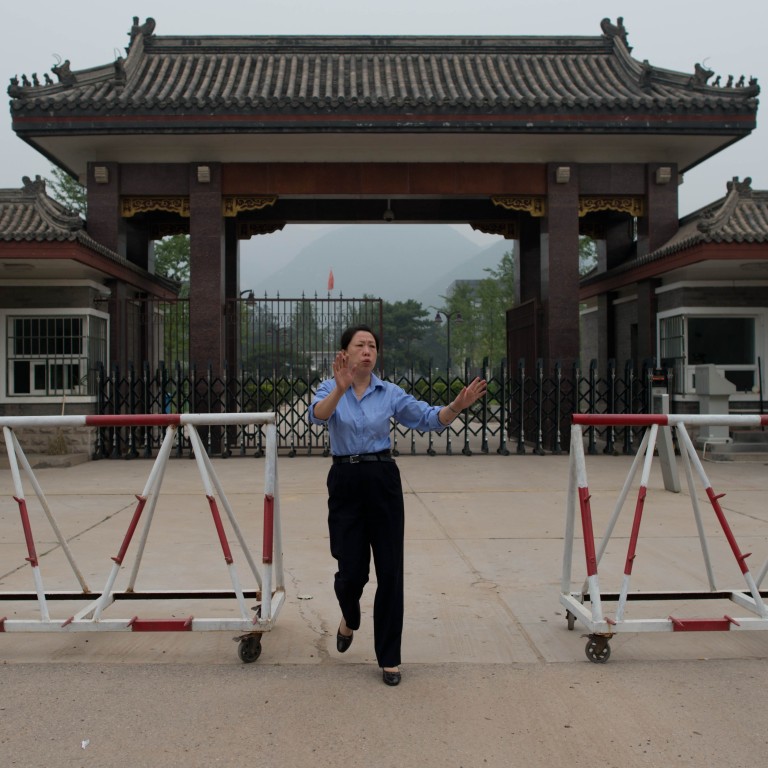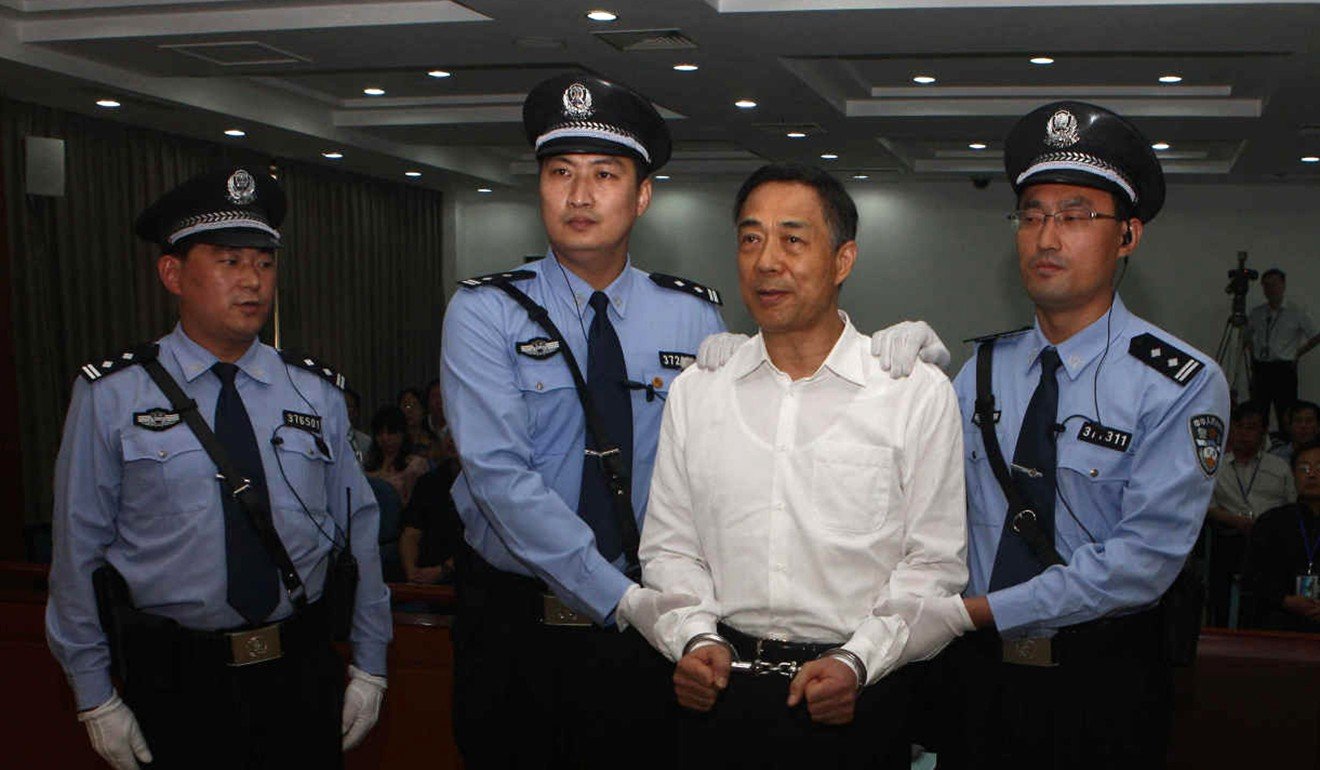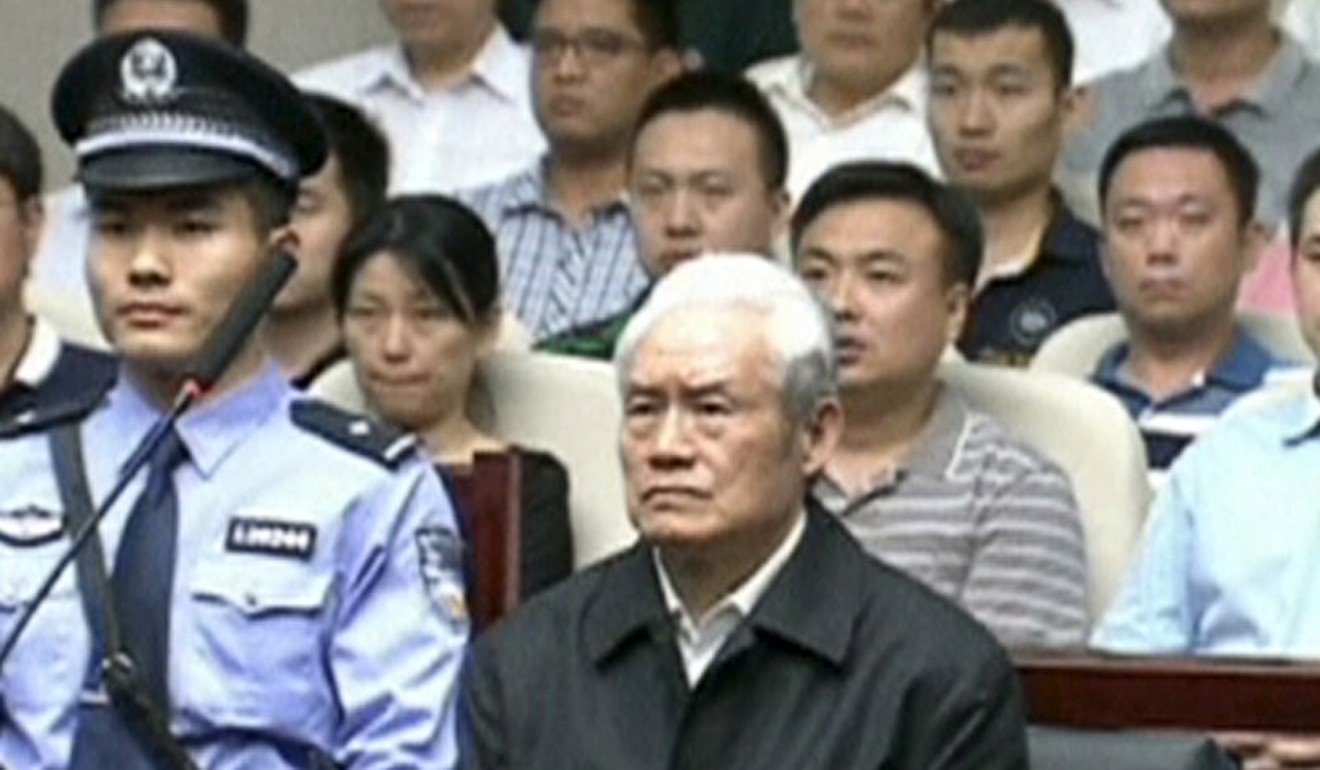
Zhou Yongkang, Bo Xilai among elite prisoners in China’s ‘tigers’ cage’ Qincheng growing vegetables and wearing suits
- Former security chief Zhou Yongkang has a garden near his cell, while disgraced politician Bo Xilai doesn’t have to don his prison uniform, according to sources
Former security tsar Zhou Yongkang was once one of China’s most powerful men. Now, he grows fruit and vegetables inside the “tigers’ cage” – the infamous maximum security jail for fallen political elites.
Meanwhile, disgraced Chongqing party boss Bo Xilai and his former police chief Wang Lijun, who were at the centre of the country’s biggest political scandal in recent years, do not cross paths at the prison but apparently share the same hobby: calligraphy.
More than 1.3 million Chinese officials – from the elite “tigers” to the ordinary “flies” – have been snared since President Xi Jinping took power in 2012 and began an unprecedented graft-busting campaign.
While many of its inmates are household names in China, little is known about the conditions within the walls of the heavily guarded prison.
But details have emerged from former guards and prisoners and the families of inmates, who have told the South China Morning Post on condition of anonymity about the treatment of corrupt cadres in the jail.

“Wang always likes doing Chinese calligraphy. He also reads a lot in prison and spends his time studying English,” according to a source close to the former police chief.
Located on the northern outskirts of Beijing at the foot of the Yan mountains, the “tigers’ cage” is different from other Chinese jails. It is directly run by the Public Security Ministry, while other prisons are run by the Ministry of Justice.
These days there are group activities – Bo is known to be active in those – and the inmates are locked in 16-square-metre cells.
Former Bo Xilai family aide jailed over murder of UK businessman Neil Heywood ‘released early’
Bo, who was known for his flamboyant style before his downfall, has also apparently been given permission to wear Western suits instead of a prison uniform, according to a source close to the jail.
He was not the first inmate granted that privilege – former Shanghai party boss Chen Liangyu was earlier allowed to swap his uniform for suits.
The source said Qincheng was not like other prisons, and that the guards were well aware of the status of the inmates.
“The guards are told to keep their hands off the prisoners. They are told the inmates aren’t ordinary people and that they have to refrain from hitting back, even if they are scolded or hit by an inmate, or they will be fired,” he said.
But although Bo is free to wear his suits, the line is drawn at leather shoes – all prisoners must wear the plastic shoes provided for them. And any shoes or trousers with laces or drawstrings are not allowed inside the prison to prevent suicides, the source added.
The tigers’ cage: inside China’s Qincheng prison
“When his relatives and friends visit him, they sometimes take home fruit and pumpkins grown by Zhou,” according to a source close to the family.

Aside from Zhou’s vegetable patch, there are also two big walnut trees and a persimmon tree within the prison grounds.
A source close to Qincheng operations said guards looked after the trees and kept them pruned.
The persimmons were also said to be a favourite of the late Yao Wenyuan, chief propagandist of the so-called Gang of Four that led the Cultural Revolution, who apparently used to hide the orange fruit in his straw hat and take it back to his cell to eat.
“He behaved like a little kid,” the source said. “There’s no rule against eating the fruit from the trees.”


